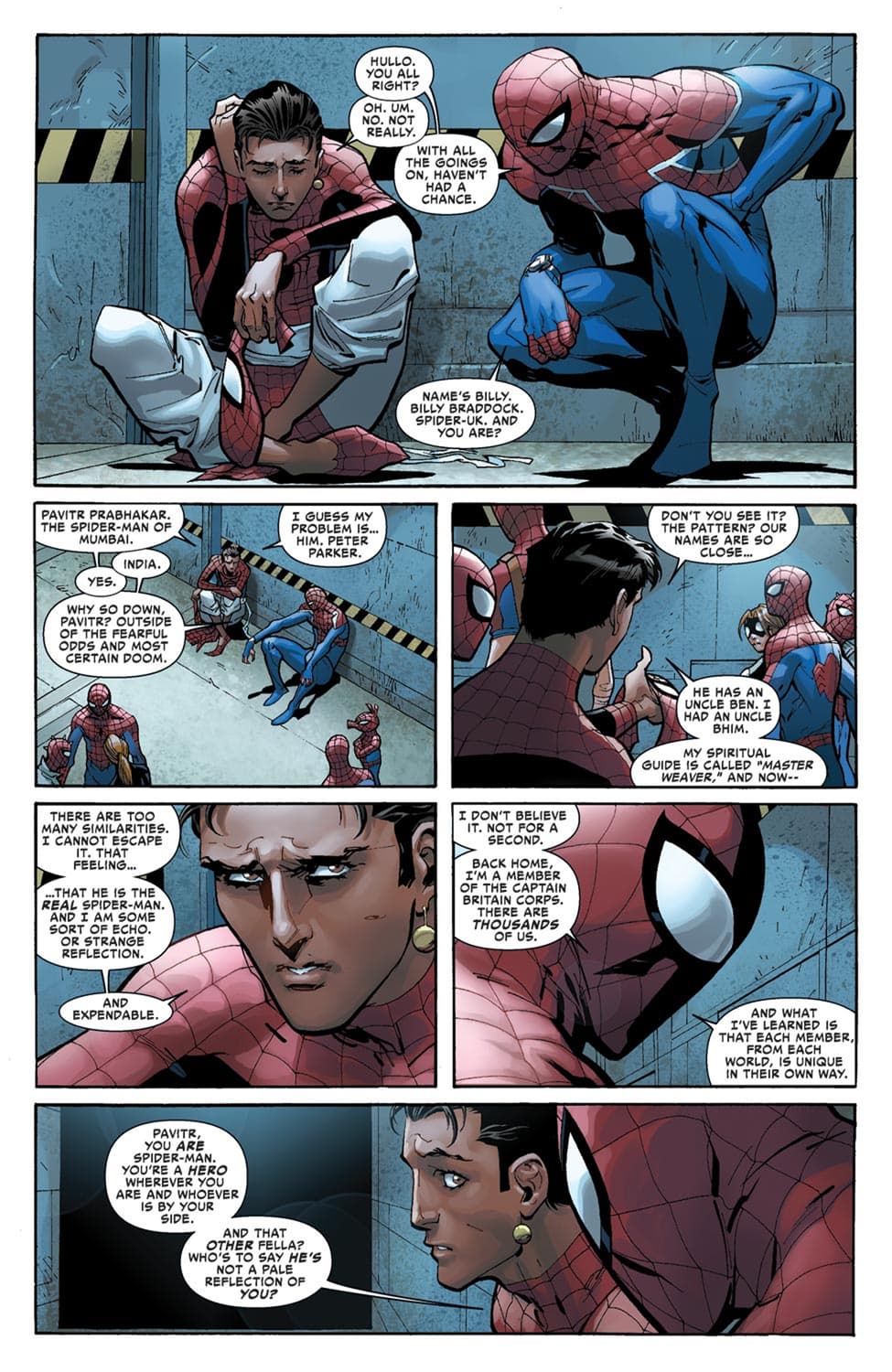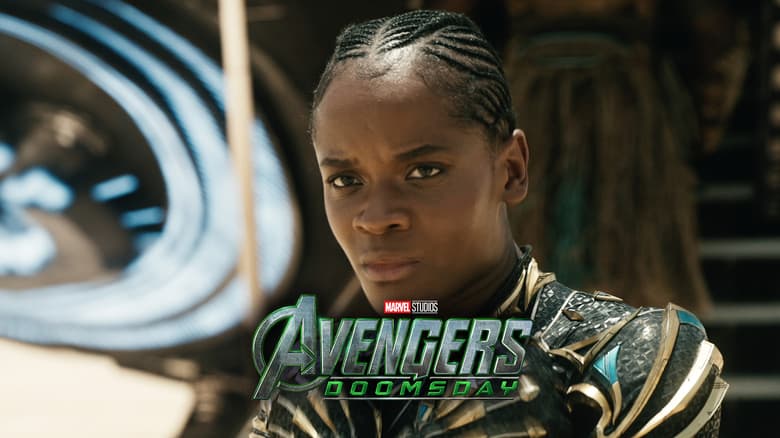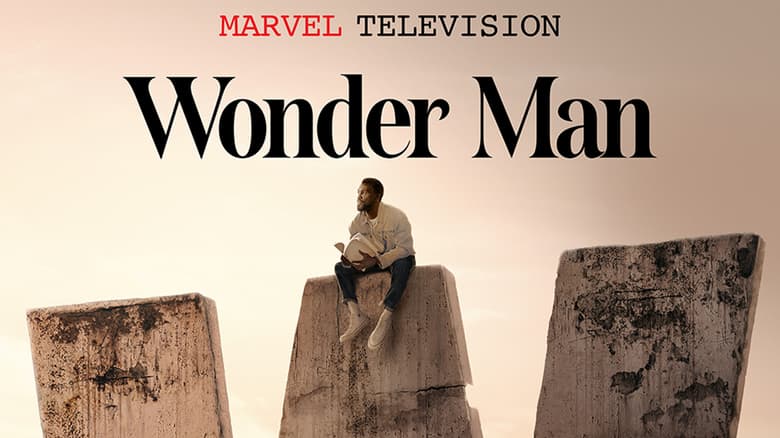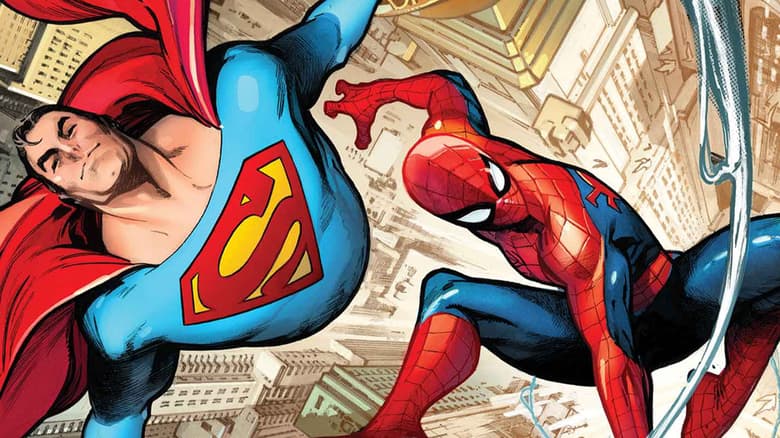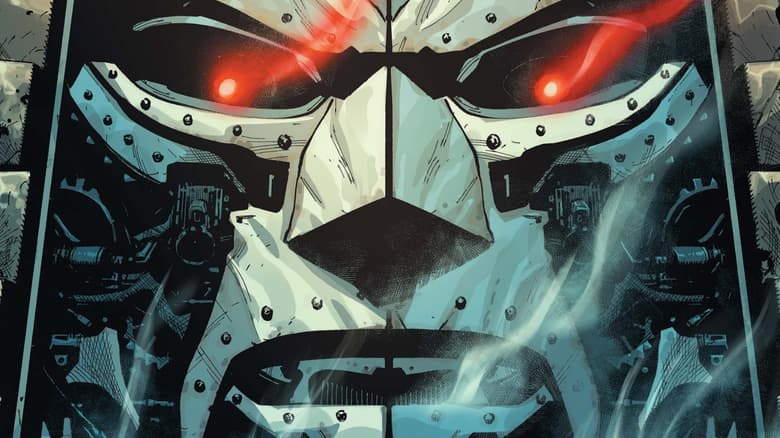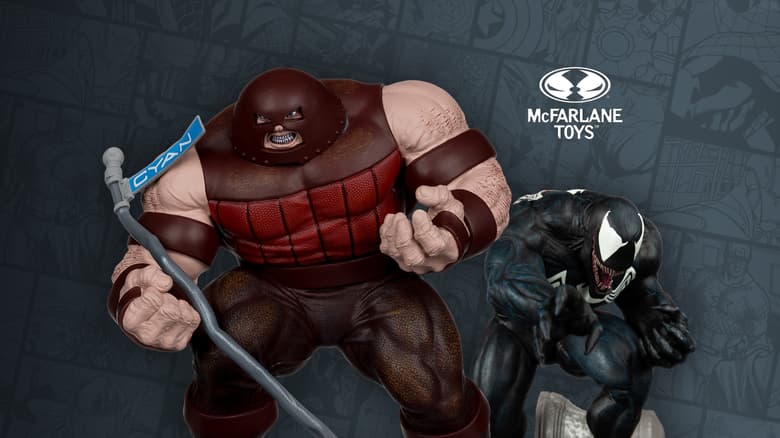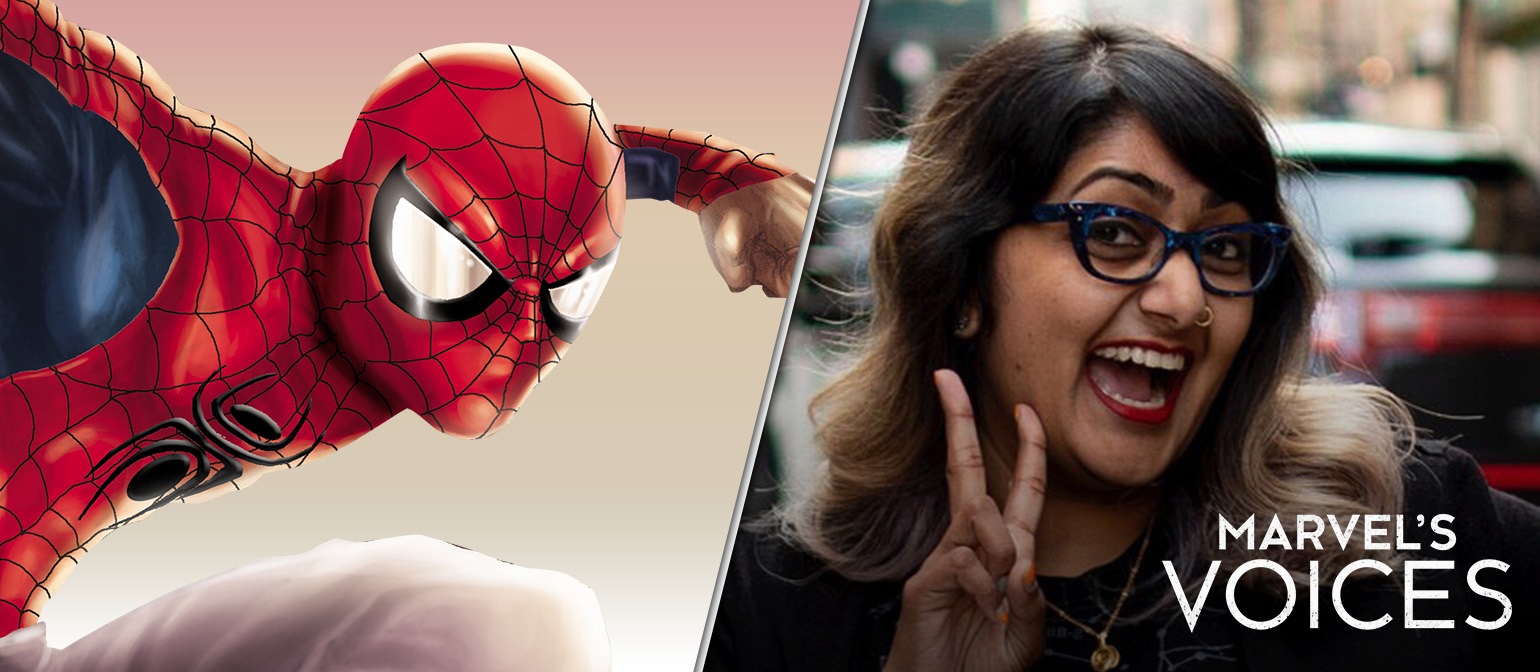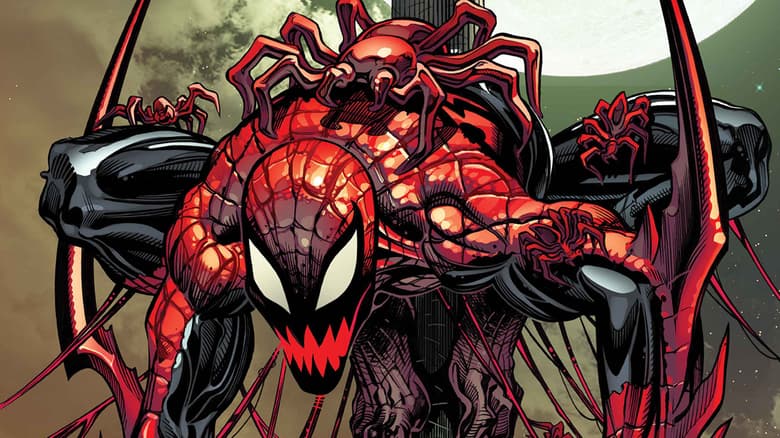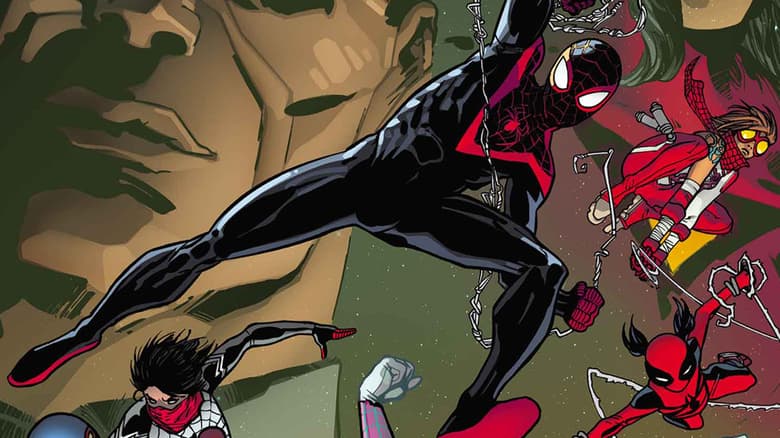'Marvel's Voices': Preeti Chhibber Talks About Her Love for Spider-Man and the People Behind the Mask
Writer Preeti Chhibber breaks down the Spider-hyphen, being an Indian-American comics fan, and how Pavitr Prabhaker became more than Indian-Spider-Man.
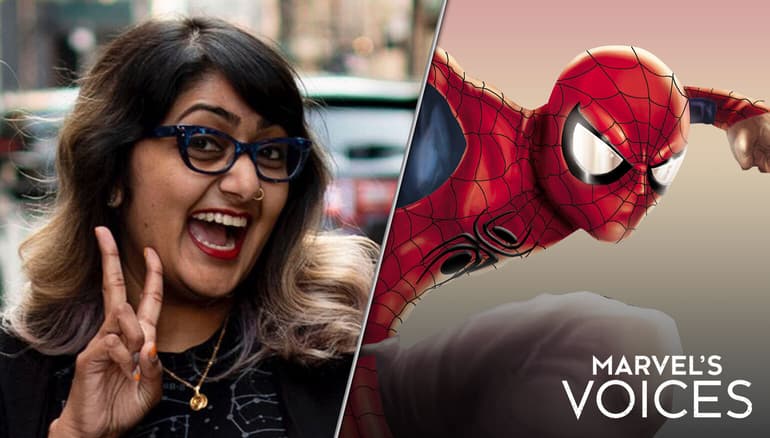
There’s a specific experience that a lot of brown kids go through when we’re growing up. It’s one of attempted assimilation, of trying to be as much of what we see around us as we can be, but never quite being able to get there.
Not because you aren’t exactly as we should be, but because people and society as a whole decide we need a hyphen to quantify what we are — a qualifier to define us, because supposedly we need to be defined. Like most brown kids, I’m immensely proud of my heritage and my cultural background as an American-born Indian, and as a child of immigrants. But, instead of being Indian and American, I was given a hyphenate, a qualifier: Indian-American. And when we were playing make-believe? Indian-Peter Pan (Hook was a big deal for us, okay?), Indian-Luke Skywalker, Indian – you get it. Even in the deepest part of our imaginations our identities were relegated and qualified. The result was that all my heroes were someone I couldn’t just be.
When Peter Parker, Spider-Man, hit the pages back in 1962, he quickly became a revelation. Here was a relatable teenager, someone who had everyday problems, who dealt with things like having crushes, dealing with bullies and doing homework. The fact that this young, awkward nerd could be a hero was aspirational. When he put on the mask, became Spider (HYPHEN) Man, he pulled together the parts of himself into someone he could just be. Still, the fact remained, that Peter was Peter. There were pieces of him that reflected us, his marginalized readers, but never the whole. Unlike Spidey’s hyphen, mine is one that breaks me apart instead of putting me together.
But, that is the power of the mantle of Spider-Man. It is both Peter and so much more. Spider-Man could literally be anyone and at times has been! Marvel has often recognized the importance of costumes as symbols, and when their heroes fall but the symbol needs to go on? Someone else takes up the mantle and it still matters. Or if there are other people in the multiverse who wear the mask? They’re still Spider-Man and it still matters. In 2011, what Miles Morales brought to the Ultimate universe was a gift we didn’t know we were waiting for – it was the implication made explicit. Miles put on the mask and became Spider-Man. This was, of course, lauded wonderfully in 2018’s Spider-Man: Into the Spider-Verse, where someone tells our burgeoning hero that “anyone can wear the mask.” Peter Parker’s even hired people to play Spider-Man to keep up the ruse of his own double-identity.
So, why does all of this matter?
What matters is that it is affirming. It’s not someone assimilating to become the hero, it’s the hero assimilating to the person. I grew up never ever seeing someone who looked like me as a hero. I could be a sidekick, or a bit role in someone else’s story, but never the lead and certainly never the one who saved the day. Never the one who was centered. Spider-Man was aspirational, but never achievable. So, it’s affirming to know that it’s not just in theory that a Black or brown face can exist behind the mask, but practice. When a writer has the opportunity with a character like Spider-Man (as I have) — a character who has universally-beloved qualities you want to have and hold — it can help a reader feel seen. This was a step towards every Spidey-fan feeling seen.
Let’s talk about Spider-Man: India AKA Pavitr Prabhaker. Created by Jeevan Kang, Suresh Seetharaman, and Sharad Devarajan in 2005, Pavitr was initially given an “Indianized” version of Peter Parker’s backstory. Whether it was his Uncle Bhim or Aunt Maya, or his friend Meera Jain — these resulted in them just being facsimiles of the Peter Parker story we already knew, transplanted out of Queens and into Mumbai. The result, Pavitr was hyphenated twice over, qualified by being “Indian-Spider-Man.”
It wasn’t until a decade later in 2015 that Pavitr started his journey as being his own version of Spider-Man, not Spider-Man: India. In the midst of the first SPIDER-VERSE run, by writer Dan Slott, Spider-people from all of the Marvel universes are pulled together to fight against their collective greatest threat. For Prabhakar, this meant the identity crisis of seeing his unique story played out by dozens of versions of himself. But Slott wrote a conversation that both recognized the absurdity of a copy, and that the character can exist as Spider-Man, period. No qualifier necessary. And as someone who consistently has that “necessary qualifier” set against her Americanness, her Indianness, her identity, this was a transformative moment. Pavitr is Indian and Spider-Man, and those two parts of his identity speak to each other and exist together authentically. But he doesn’t need a descriptor to separate him out. As a writer, the potential of bringing my own lived experience into a character who can embody all those different pieces of me and be a Super Hero is not something I’m used to. There just aren’t enough of us yet. (If anyone wants to do a solo Pavitr Prabhakar book, I am right here, keyboard ready.)
I am a huge Spider-Man fan, a “superfan” some might say, and to see a desi character inhabit the mantle in his own, unique-to-Pavitr way in multiple series has been nothing short of brilliant. Spider-Man is our everyman. We see ourselves in him, in his shortcomings, and in his desire to do good despite those flaws. And when we make that everyman as inclusive as possible. By truly allowing anyone to pull on that mask and be a hero. It makes heroes of us all, and every part of us a hero.
To read more essays from Marvel's Voices on Marvel.com, head over here!
The Daily Bugle
Can’t-miss news and updates from across the Marvel Universe!

